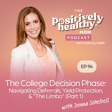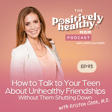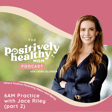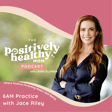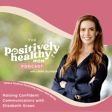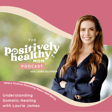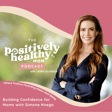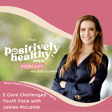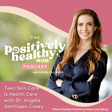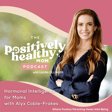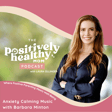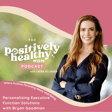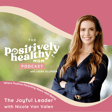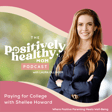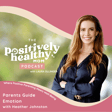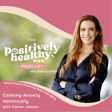
Teen Rx Meds
Welcome to The Positively Healthy Mom Podcast! I'm Laura Ollinger, and today, I’m excited to welcome Lidia Molinara, a Pharmacist, Certified Geriatric Practitioner, and Patient Safety Officer with extensive experience in healthcare and medicine safety advocacy. Lidia has dedicated her career to empowering individuals to take control of their health, and today, she’s here to share her insights on managing "Teen Rx Meds"—a topic that many parents find both challenging and crucial.
In this insightful episode, Lidia dives into the complexities of managing prescription medications for teens, helping us see it not just as a necessity, but as a powerful opportunity to teach responsibility and health advocacy. Lidia’s passion for healthcare began with a desire to ensure patients make informed decisions about their medications. Over the years, her work has expanded into guiding families through the often-overwhelming landscape of medication management, herbal remedies, and effective communication with healthcare providers.
Lidia walks us through practical strategies for safely managing teen medications, making her guidance invaluable for busy moms who want to ensure their teens are taking medications correctly. From understanding potential side effects and interactions to establishing medication routines, Lidia’s advice is rooted in creating an open and supportive environment. She also offers tips on how to involve teens in these discussions, ensuring they take ownership of their health decisions.
For our listeners, Lidia emphasizes the importance of education and communication. She explains why teens should be informed about their medications and how parents can empower them to ask the right questions, helping reduce the likelihood of medical errors. Her expert advice fosters trust, giving parents peace of mind as they guide their teens through the often confusing world of healthcare.
Lidia also shares insights on how to make medication management a stress-free part of daily life. She emphasizes the importance of creating a routine that incorporates medication use seamlessly, allowing teens to take an active role in their healthcare without feeling overwhelmed.
The Positively Healthy Mom FB Group
The Positively Healthy Mom FB Group
